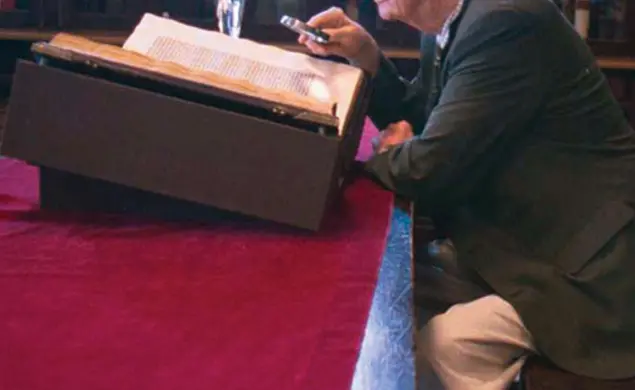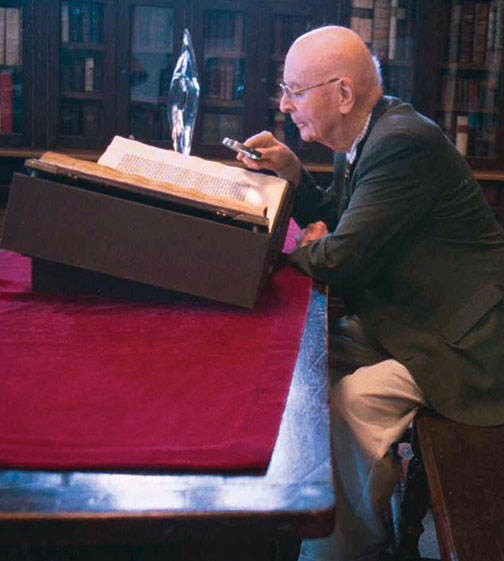Lives: William Scheide '36
 Lives-ScheideNew.jpg
Lives-ScheideNew.jpg
It’s hard to know where the cause of racial justice would be today without Bill Scheide ’36. A child of great privilege, Scheide used the family fortune to bankroll many of the most important civil-rights cases of the last century, including the landmark school-desegregation case, Brown v. Board of Education. Scheide had made an initial donation of $5 to the NAACP Legal Defense Fund’s direct-mail campaign when Thurgood Marshall, who would argue and win the case, heard about this wealthy young man and decided to appeal to him directly for money. Scheide, it turned out, was eager to help.
“Brown wouldn’t have gotten the support [it needed] without Bill Scheide,” says Ted Shaw, a former director-counsel of the NAACP’s Legal Defense Fund. “He had a quiet but fierce commitment to ending racial injustice.”
With his support for Brown, Scheide was just getting started. He went on to become the fund’s most generous benefactor, donating, by his widow Judy’s estimate, some $6 million over the past 20 years. “We’d mention we needed money for something and a few days later a check would arrive, for $200,000 or $500,000,” recalls Shaw. During the 2000 election recount in Florida, Scheide gave $200,000 to pay for Democratic poll watchers.
The only child of oil-rich, arts-loving parents, Scheide spent a lifetime not just enjoying the arts — Bach above all — but finding ways to share them with those who otherwise might not enjoy them. His annual birthday concert in his adopted hometown of Princeton was one example. He also gave money to the Princeton University music department; the Arts Council of Princeton; the Trenton community organization ISLES; and to Centurion Ministries, which works to free innocent men and women in prison.
“Bill’s father was a real civil-rights mover,” says Judy. “He sent his son to the Loomis School because it didn’t charge tuition [it does today] and Bill would be around people who did not have money. Bill was told at the age of 8 or 9 that he was merely a steward of the family fortune, but that it should be used to help the poor.”
Scheide’s grandfather had been John D. Rockefeller’s national manager of pipelines, a lucrative position that allowed him to pursue his twin passions, music and literature. In the family home in Titusville, Pa., he built an ornate library with glass-fronted oak bookcases and set about the wondrous task of filling them. When the collection moved to Princeton in 1959, Scheide paid to have a replica of the library built in Firestone. On his 90th birthday, he announced that the collection would be donated to the University upon his death.
What a collection it had become — one of the finest private gatherings of rare books and manuscripts in the world! Among its treasures are examples of Shakespeare’s four folios; early printings of both the Declaration of Independence and the Magna Carta; a first edition of Paradise Lost; scores signed by Bach, Mozart, and Beethoven; as well as the first four printed editions of the Bible, including a Gutenberg.
There is also a speech on slavery written in Abraham Lincoln’s own hand, which must have resonated deeply with Scheide, a lifelong admirer of the 16th president. Scheide spent his life as a registered Republican, even though his sympathies aligned him more with the Democrats, as his wife, a Democrat, never tired of pointing out.
According to Judy, he had a good explanation: “He’d say, ‘I could never do that to Lincoln.’”
Merrell Noden ’78 is a frequent PAW contributor.
In a feature for the public television show State of the Arts New Jersey, Scheide shows a selection of rare books to visitors at the Scheide Library.








